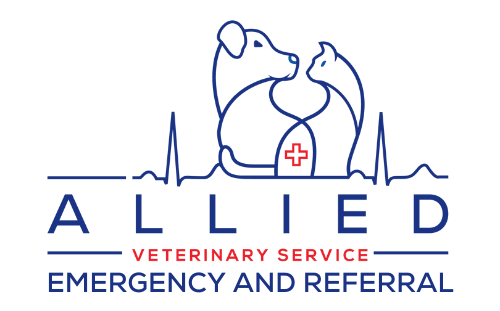Femoral Head and Neck Excision (FHNE or FHO) Surgery for Dogs and Cats
Introduction:
Femoral Head and Neck Excision (FHNE or FHO) is a surgical procedure designed to alleviate pain and improve mobility in dogs and cats suffering from hip joint diseases and injuries. This operation is often recommended when other treatments have failed to provide relief or when hip replacement surgery is not an option.
Why This Surgery?
Hip problems in pets, such as hip dysplasia, fractures, or severe arthritis, can lead to debilitating pain and reduced quality of life. FHNE surgery involves the removal of the femoral head (the ball part of the ball-and-socket joint in the hip) and its adjoining neck, allowing the body to form a 'false joint' that reduces or eliminates the pain.
Why perform surgery at Allied Veterinary Service?
- Our surgeons have undergone rigorous residency training in small animal orthopedic and soft tissue surgery.
- Patients receiving this procedure typically receive spinal blocks (like epidurals) and/or regional pain blocks to ensure the best experience possible for your beloved pet.
- Our doctors will care for your pet 24/7 before and after your pet’s surgery and tailor treatment according to the patient’s needs.
What Does the Surgery Involve?
Under general anesthesia, the surgeon makes an incision over the hip to expose the joint. The femoral head and neck are then surgically removed. Over time, the area heals, with muscle and scar tissue creating a pseudo-joint that offers the pet pain-free mobility.
Benefits of Surgery:
- Pain Relief: Directly addresses the source of pain by removing the diseased or damaged joint parts.
- Improved Mobility: Most pets return to walking, running, and playing after recovery, though the range of motion may be slightly reduced.
- Enhanced Quality of Life: Pets often live a happier, more active life post-surgery without the constant pain of hip issues.
Risks and Complications:
- Postoperative Pain: Management with medications is necessary.
- Infection: Rare, but can occur at the surgery site.
- Lameness: Some pets may experience ongoing lameness or stiffness, although this is generally less severe than pre-surgery.
- Limited Range of Motion: The movement may not fully return to normal, but the quality of life is significantly improved.
Recovery and Aftercare:
- Rest and Confinement: Limit your pet's activity and confine them to a small, comfortable area to prevent injury while healing.
- Physical Therapy: Rehabilitation exercises may be recommended to strengthen the muscles around the new joint and improve the range of motion.
- Pain Management: Follow your veterinarian's instructions for pain relief medications.
- Follow-up Visits: Check-ups are crucial to monitor healing and progress.
Cost Considerations:
The cost of FHNE surgery varies based on several factors, including the severity of the condition, the size of your pet, and post-operative care requirements. Our team provides a comprehensive estimate to help you understand the financial aspects of the surgery.
Final Thoughts:
Choosing FHNE surgery for your pet is a decision made from a place of love and concern for their well-being. Our veterinary team is committed to supporting you and your pet through the entire process, from pre-surgery consultation to post-operative care and beyond.
Legal Disclaimer:
This pamphlet is for educational purposes only and is not intended to substitute for professional veterinary advice, diagnosis, or treatment. Surgical outcomes vary depending on the individual pet's condition and health status. Always consult with a qualified veterinarian to understand the best treatment options for your pet.
Contact Us:
For more information about FHNE surgery or to schedule a consultation, please contact us. Our compassionate and experienced team is here to answer any questions and guide you through caring for your pet during this time.
Allied Veterinary Service - Emergency and Referral
8301 93rd Ave N, Brooklyn Park, MN 55445
(763) 463-9800
Open 24 hours
